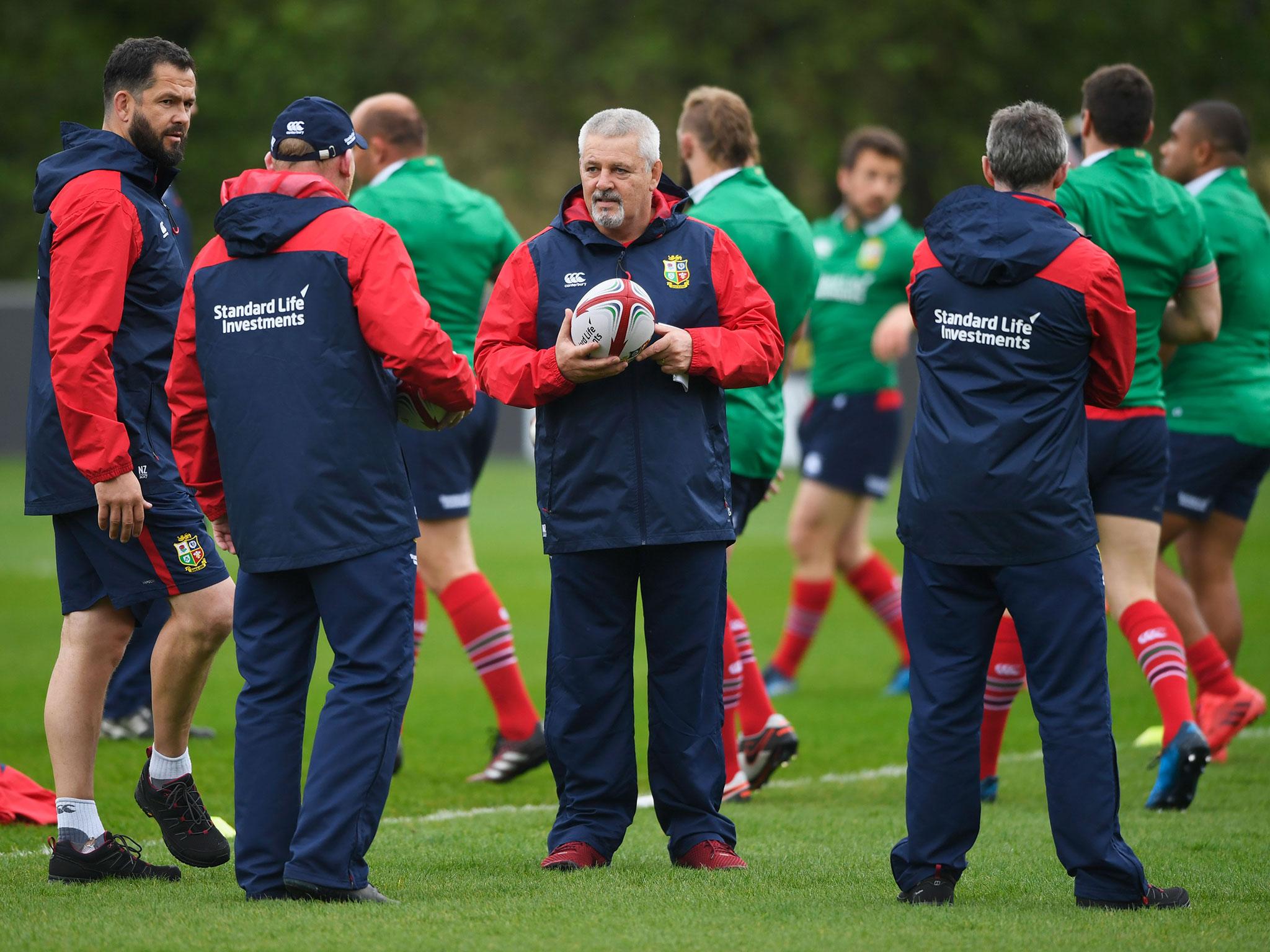British and Irish Lions tour future not in danger despite schedule concerns, insists RFU chief Ian Ritchie
The Lions face a demanding 10 matches in 35 days, but Ritchie believes cutting the number of matches to eight will hold the tour in good stead for the future

Your support helps us to tell the story
From reproductive rights to climate change to Big Tech, The Independent is on the ground when the story is developing. Whether it's investigating the financials of Elon Musk's pro-Trump PAC or producing our latest documentary, 'The A Word', which shines a light on the American women fighting for reproductive rights, we know how important it is to parse out the facts from the messaging.
At such a critical moment in US history, we need reporters on the ground. Your donation allows us to keep sending journalists to speak to both sides of the story.
The Independent is trusted by Americans across the entire political spectrum. And unlike many other quality news outlets, we choose not to lock Americans out of our reporting and analysis with paywalls. We believe quality journalism should be available to everyone, paid for by those who can afford it.
Your support makes all the difference.The future of the British and Irish Lions is not under threat, according to outgoing Rugby Football Union chief executive Ian Ritchie, but the series does need to be made shorter in order to protect both the players and the tour.
A day after announcing that he will step down from his role at the end of the summer to retire after five years at the helm of English rugby, Ritchie once again expressed his desire to see the Lions cut from 10 to eight games. Ritchie also backed calls for the Six Nations to be reduced from a seven-week championship to a six-week programme, but saw this overlooked earlier in the week when the competition’s organisers confirmed an unchanged structure for the next two years.
With the Lions preparing to jet out for New Zealand a week on Monday for what will be the most tightly-packed tour schedule seen in the club’s history – playing 10 games in the space of 35 days – Ritchie has already pointed out where the extra days off can be made up.
“If you look at 10 to eight, if you took the first match out, instead of playing three or four days after arrival and said that match didn’t happen and the first warm-up game is the following Wednesday, that would be beneficial,” said Ritchie, a Lions board member.
“The second match that you would probably look at is in between the first and second Tests there is a provincial game and do you really want that? I would think there’s a strong argument that a reduction from 10 to eight in terms of the schedule is an improvement. I believe that the Lions board think that is perfectly reasonable.”
But this reduction, which looks certain to come in once the tour against the All Blacks is done and dusted given that head coach Warren Gatland has also criticised the schedule, will not place the famous team in danger, according to Ritchie.
“I don’t think it threatens the Lions existence at all,” he insisted. “These things move on, a wonderful story I heard about them going for nine months. These things change and you have to move with it. None of us want to do anything that will not see the Lions go from strength to strength so I don’t think it is detrimental.”
The planned schedule out in New Zealand may well prove detrimental to the Lions touring party though. While Gatland's side face 10 matches against the five New Zealand Super Rugby sides, the New Zealand Provincial Barbarians, the New Zealand Maori and, of course, the All Blacks, Steve Hansen’s side will only play one match outside of the tour series which will come in a warm-up against Samoa – eight days before the first Test in Auckland.
But Ritchie skirted around the issue of whether there was any regret about agreeing this schedule with the New Zealand Rugby Union, and instead looked at the positive impact that the 10-game programme has in Australia four years ago.
“The Lions as far as Sanzaar [Southern Hemisphere rugby] are concerned – the economics is hugely important to them,” he added. “The last tour was a lifesaver for Australian rugby. They keep the lion’s share of the money. That’s right but going back to the 10 to eight bit, that had to be agreed with Sanzaar and the key was to keep three Test matches.
“The same balance between Sanzaar and the northern hemisphere is the same balance between club and international and it’s trying to find the balance. That would still need to be looked at. But the Lions is a hugely important part of the calendar and we want to keep it that way.”
Join our commenting forum
Join thought-provoking conversations, follow other Independent readers and see their replies
Comments